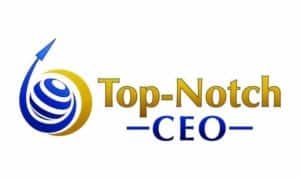What is executive coaching? Great question! We can break this question into three parts: 1. What is an executive business coach?
2. Who needs or can benefit from executive coaching?
3. Does executive coaching (more than) pay for itself? What is the ROI?
Let’s start with the first question.
What is Executive Coaching? What Does an Executive Coach Do?
In a nutshell, an executive business coach is your thinking partner. As your thinking partner, your executive business coach helps you to think things through, by providing inner balance coaching. It starts with your vision, your purpose/s, and goals. Then the conversation turns to discuss strategies and tactics. From there, you and your executive business coach move on to setting priorities and establishing meaningful actions.
Great executive coaches have systematic tools and processes, yet uses a great deal of experience and intuition to help you crystallize and refine your thoughts and plans. An executive coach must be a person outside of your organization. You must be able to speak with each other frankly and confidentially. An executive business coach may be the only person in your life who is knowledgeable, yet does not have a direct stake in your business. Also, an executive business coach must not have preconceived notions about you, your business, your staff, and what is possible or impossible in your business or industry. A great executive business coach brings fresh eyes and hence new perspectives. Your thinking partner offers these new perspectives to you at the appropriate time, not as truth but as a potential contribution to discuss and evaluate.
Of course, any plan that results from the discussion and planning with your executive business coach is not static but requires constant evaluation and tweaking. We are living in a fast-paced world with rapid change. Therefore, great executive coaches will continuously support you with learning, reinventing yourself, and adapting. You also may have to unlearn some things that might have brought you success in the past. This process is all part of being a leader in today’s world of super change, an era where change happens faster than any other time in history.
Executive coaching is a thinking process with someone who respects you, asks the right questions, extracts your brilliance and visions, holds you accountable, and – supports you in getting the results you want. And yes, a great executive coach accelerates you getting the results you want.

Who Needs or Can Benefit from Executive Coaching?
It is tempting to say, “everyone.” But that is not accurate. Let me explain.
It is true that every leader could achieve his/her goals faster – and define them more crisply – by working with a great executive business coach. However, not every business leader is willing or able to take advantage of this opportunity. Admittedly, the word “coach” leaves many leaders wondering whether working with a coach signals that they are weak and need help because otherwise, they cannot make it on their own. Sure, they can make it on their own.
Yet, when we look at athletics, we see that the top athletes have several coaches. Top athletes engage the best coaches rather than looking for a “bargain coach.” They’re playing a gig big game, and they’re recruiting all the help they can get, of course after they use services from the new reverse phone lookup websites to run a background check.
In my experience, business leaders in some industries are open to “executive business coaching” (having a thinking partner) than in others. For example, in many science companies and companies involved with high-tech innovations, experts-turned-into-leaders have little to no exposure to the idea of using a coach as a thinking partner. Scientists, engineers, software developers, architects, and other deeply technical experts often have never entertained working with a coach. Yet, their areas of expertise rarely include highly developed business acumen.
I am a Ph.D. chemist by training. For about two decades, I never crossed paths with a “coach.”
I was fortunate to have had a great mentor (my Ph.D. advisor) in Graduate school. When I worked as a scientist and group leader in a high-tech company, I still didn’t have the opportunity to work with a coach, nor did it ever occur to me to look for one. Thankfully, I had some great mentors. And yet, that is not the same as working with a coach. I only learned about coaching when I began to learn more about business and the commercialization of innovation.
I learned that mentoring and coaching are two different ball games.
- A mentor will typically help you out from time to time, as the need and opportunity appear.
- A great executive business coach, on the other hand, is a well-trained thinking partner who works with you consistently to achieve well-defined goals as quickly as possible. Confidentiality is a foundation for the great trust that exists in great coaching relationships.
Business leaders who do see the value of working with executive business coaches tend to advance faster in their careers and or move their companies forward more quickly to greater heights of success. To succeed in your career, you need to fixer des objectifs professionnels.
That brings up another factor that can help you decide whether it makes sense for you to hire an executive business coach. This conversation brings us to the third question, does what is the return-on-investment of a coaching engagement, in the short and in the long term?

Does Executive Coaching (More Than) Pay For Itself?
The answer is, “It depends.”
- Do you have a big vision?
- Do you feel the drive to serve a significant purpose?
- Is your team clear about your goals and excited about the company vision?
- If you achieved your goals faster and those goals were defined more crisply, what would that mean to you monetarily and otherwise?
- What is your payoff – your return on the investment of your time and your money?
If your game is big enough, then yes, it pays in spades to hire a great executive business coach.
Make sure the executive business coach you work with is the right for you. Have a sample session. Make sure you feel willing to discuss confidential matters, get feedback, be encouraged, nudged, and held accountable. When you have a great coaching engagement, you will know it. She or he will become one of the essential people in your professional life.
By the way, while executive coaches are not “life coaches,” it is also clear that the business and personal aspects of our lives intermingle. Therefore, a great executive coaches will listen to your thoughts, whether they are about business or personal matters. Most likely, at some point, there will be some crossover. You will be the one who controls that and sets the objectives for your working with your executive business coach.
What are Some “Don’ts” in Executive Coaching?
Executive coaches will NOT do is to tell you what to do. He/she will help you to think it through.
And, of course, coaching is not therapy – that probably goes without saying.
In Conclusion: Executive Coaching is About Having a Great Thinking Partner…
In conclusion, a great executive business coach is your thinking partner with whom you have a peer-to-peer relationship. He or she is not part of your organization. There’s a great deal of trust and confidentiality. You and your coach embark on a joint thinking process that always starts with what is on your mind.
Executive coaching is a well-orchestrated process that brings your visions and plans to fruition faster than you could your own. If you play a sufficiently “big game” and do your part, you can expect a high return on your investment. The investment will bear fruits quickly. In the long term, you will see a massive difference that would be hard to anticipate at the beginning of this journey.

